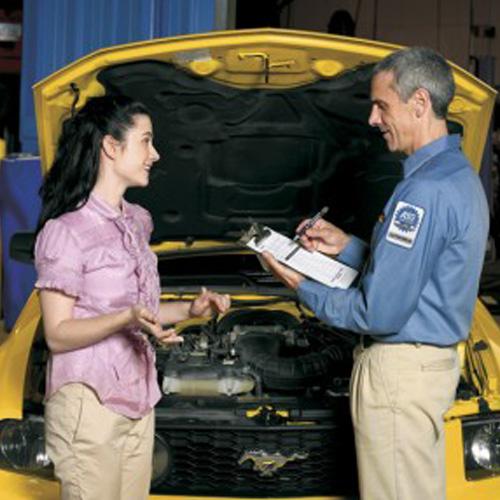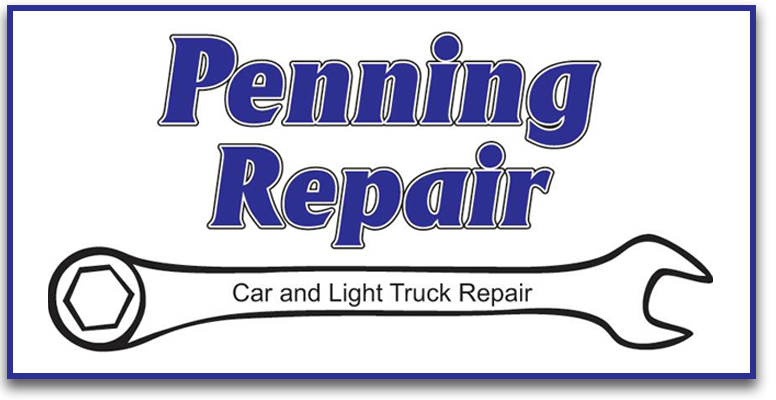Services
OIL CHANGES
Engine oil is what lubricates a car’s engine, allowing it to run smoothly and last longer. Car owners must maintain a car’s engine by changing the oil and using the oil appropriate for their cars make and model. Every car comes with a “check oil” light and an oil filter under the hood. These components allow car owners to monitor their oil levels and add oil as needed without having to hire a mechanic.
Changing the Oil
An important part of routine car maintenance is changing the oil regularly. The necessary frequency of oil changes has become a point of contention among experts. The Engine Oil Bible maintains that engine oil can’t be changed often enough, but Nordic Group insists that, with the advent of detergent oils and multi-weight oils, some vehicles can go as far as 6,000 miles before needing an oil change. The best course of action is to check the owner’s manual and follow manufacturer’s recommendations.
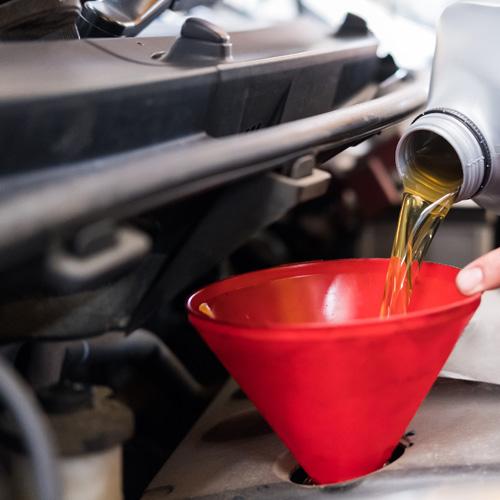
EXHAUST SYSTEMS
While your exhaust system helps reduce noise output from your vehicle, it also significantly reduces harmful emissions from being released into the air. When your muffler and exhaust system functions properly, it significantly reduces your vehicle’s harmful impact on the environment. It also significantly improves the functionality of your vehicle.
Your vehicle’s exhaust system involves several components. The exhaust manifolds right behind the engine collect exhaust gases and connect to cylinder heads. Gases collected by your vehicle’s exhaust manifolds are analyzed by oxygen sensors and refined by catalytic converters before being muffled by the mufflers. By the time these gases reach the muffler, the emissions system has made your car run smoother, quieter and cleaner.
If any of the components of your vehicle’s exhaust system fail, your gas mileage and quality of air around you can be affected. The expert team at Penning Repair can inspect and repair your entire exhaust system to ensure your vehicle is running cleanly.
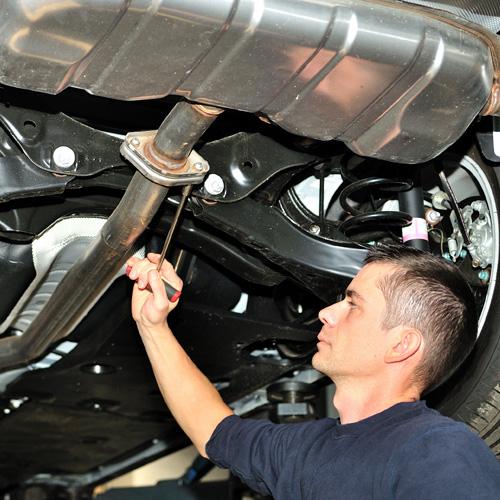
PREVENTATIVE MAINTENANCE
The best way to prevent long-term and costly problems with your vehicle is to keep up with its preventative maintenance schedule. One major key to successfully making sure you are doing all you need to do is to read your vehicle’s owner’s manual. Regardless of your vehicle’s make or model, its owner’s manual will contain a maintenance schedule. Every make and model is different, and standby beliefs such as “You have to change your oil every 3,000 miles,” may not apply to your car.
The maintenance schedule within your owner’s manual is provided by the people who understand your vehicle the best—the company that built it. The manufacturer provides suggestions for how often you need to change your oil, filters, driving belts, timing belts and more.
While some preventative maintenance—such as topping off fluids—can be performed by the vehicle’s owner, other, more complicated procedures should be done by experts like the team at Penning Repair .Our team can keep your vehicle in top shape by performing the following maintenance:
- Inspecting and replacing timing belts (preventing damage to other accessories)
- Inspecting and replacing serpentine belts (preventing damage to other accessories)
- Checking and changing oil
- Checking, repairing and replacing battery connection components
- Checking and replacing batteries
- Checking and replacing cabin air filters: This can keep your car comfortable during the hot summer months.
- Checking and replacing your engine air filter, You may need to replace your engine air filter more frequently if you drive in stop-and-go traffic or have a long commute.
- Checking and replacing spark plugs
- Tire rotation: This helps ensure even wear on your tires, which can help prevent blowouts and leaking. It also helps make your ride smoother.
- Tire balancing: Balancing your tires prevents wear, which can significantly improve their life and save you money.
- Wheel alignment
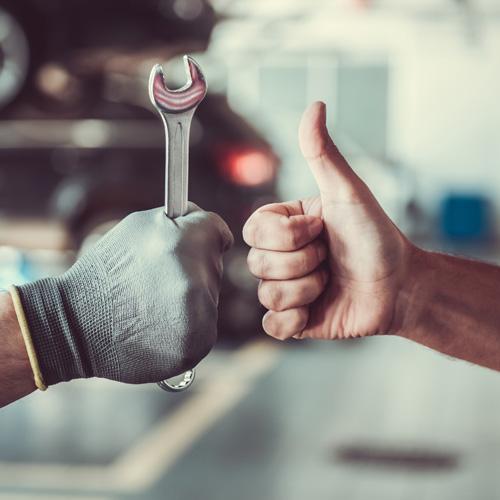
CUSTOM WELDING AND FABRICATION
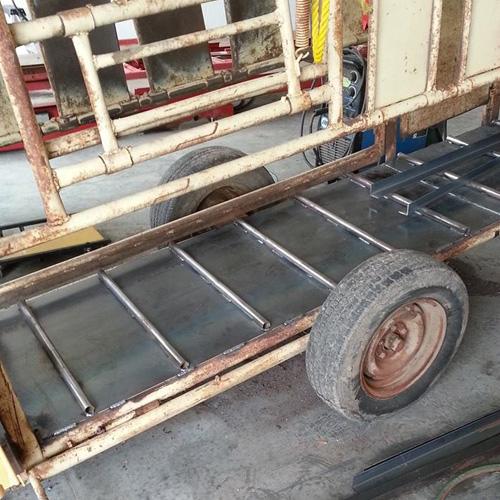
TIPS & ADVICE
Your tires should be rotated every other oil change or every 5,000 miles. Neglecting to rotate tires is a major cause of premature tire wear.
Is it really necessary to replace my timing belt at the manufacturer’s recommended interval?
YES. The failure of a timing belt in many cars can result in major engine damage. The cost of repairing an engine with a broken timing belt is much greater than the cost of a timing belt replacement.
What does it mean if my “check engine” or “service engine soon” light comes on?
There are many sensors and computerized components that manage your vehicle’s engine performance and emissions. When one of these fails, the “check engine” light is illuminated. Although your car may seem to run fine, it is important to have the issue addressed to prevent long-term problems or failure of emission tests.
What should I do if my car starts to overheat?
This is a very serious problem – if your car overheats for too long, you can damage your engine. As soon as possible, find a safe place to pull off the road and shut off the engine! Do not attempt to check the fluid level in the radiator as it can burn you. The best thing to do is have your car towed to a repair shop.
When should I get my oil changed?
You should get your oil changed every 3,000 miles or as recommended in your vehicle’s owner’s manual. If intervals are extended, ensure you use oil that is capable of extended mileage changes.
What is synthetic motor oil?
Synthetic motor oils can be a good choice for high output, turbocharged or supercharged engines, vehicles that are used for towing (especially during hot weather) or vehicles that are operated in extremely cold or hot climates. Synthetic motor oils, though several times more expensive than mineral-based motor oils, can improve fuel economy and provide longer intervals between changes. They also provide instant lubrication on start-up.
